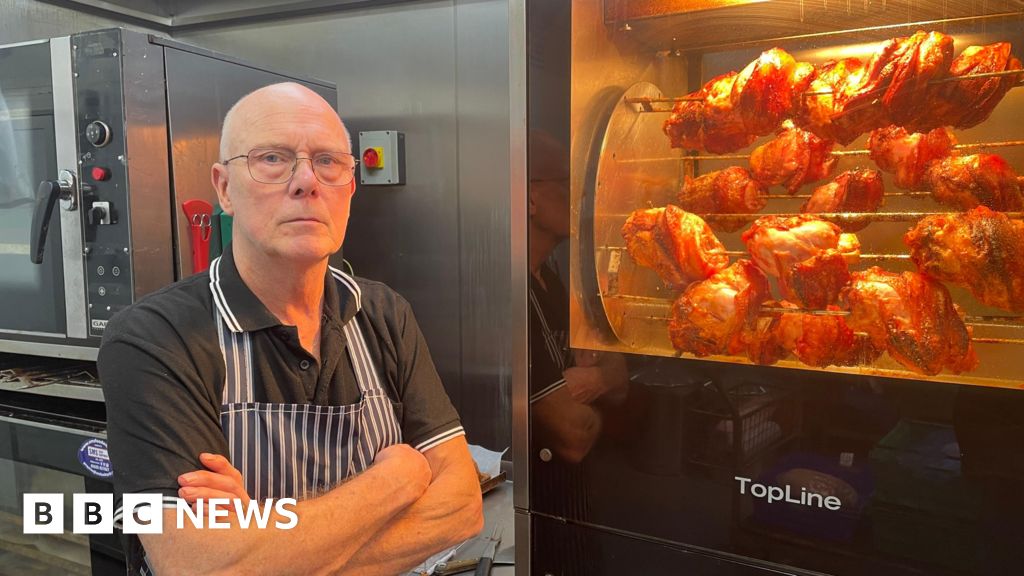 LDRS
LDRSTraders who were moved out of an indoor market over fears the roof could collapse have urged a council to “fix it and let’s go again”.
A year has passed since RAAC concrete was discovered in Bury Market and businesses were forced to find new homes elsewhere.
Bury Council has yet to decide on the future of the building after surveyors estimated the roof would cost £6m to repair.
Steve Moloney, whose BBQ shop had to shut for six months due to the closure, said “all options were expensive” but said the council could recoup the cost from market rents.
 LDRS
LDRSThe 68-year-old’s hot food store was long-established inside the indoor hall until the “devastating” closure.
“We were out of work for just over six months with nothing. I depleted my business account to pay my four staff so I could keep them on,” he said.
His was one of many business that was eventually relocated to the Mill Gate shopping centre, or to stalls in the outdoor market.
Bury councillor Charlotte Morris said staff had done their “absolute best” to help the traders by finding new premises and offering financial support.
She said there was “unfortunately no quick fix” to the structural problems, and all the options available would “cost taxpayers many millions of pounds”.
Consultants have been appointed by the council to draft up costs and timescales for options including refurbishing the hall, building a new one or developing a “Preston style” covered market.
 LDRS
LDRSSteve Taylor, who runs Bury Loose Covers and Foam Products on the outdoor market, said the whole market had suffered from the closure as the indoor hall was “an important part of the appeal”.
“I would like to see it restored and brought back,” he said.
‘Not rocket science’
Zane from Walsh’s Butchers said the firm had to lay off three staff after the indoor hall closed.
“We had £60,000 invested in bespoke counters in the hall. It was a real blow to lose staff, to lose the base for our business,” he said.
Dave Regan, 71, from Bradley Fold, said: “I was a regular shopper there and was friendly with many of the stallholders, including the butchers.
“It’s going to be expensive whatever course of action they take. My feeling is it will eventually get pulled down, which will be a shame.”
“We’re now 12 months down the road and they’ve not even lifted a roll of Sellotape to look at the structural problems,” Mr Moloney told the Local Democracy Reporting Service.
“All the options are expensive but it’s not rocket science to know that if you’re losing £1.2m in rent and the bill’s going to be £6m you’ve only got six years down the line and you’ve got your revenue back,” he said.
“My solution would be fix and let’s go again.”




